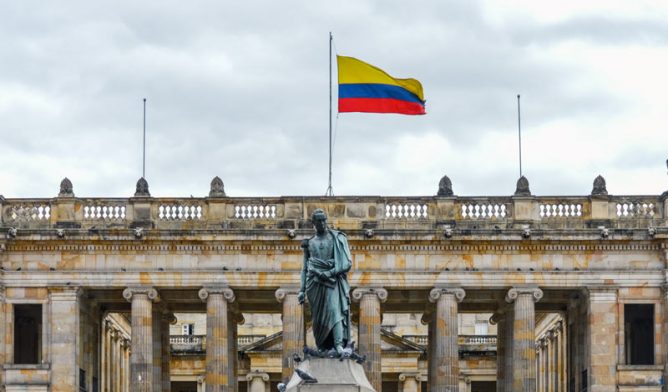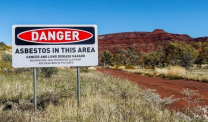Colombia Ban of Asbestos Sets Example for US to Follow
Asbestos Exposure & BansWritten by Tim Povtak • Edited By Walter Pacheco
Asbestos.com is the nation’s most trusted mesothelioma resource
The Mesothelioma Center at Asbestos.com has provided patients and their loved ones the most updated and reliable information on mesothelioma and asbestos exposure since 2006.
Our team of Patient Advocates includes a medical doctor, a registered nurse, health services administrators, veterans, VA-accredited Claims Agents, an oncology patient navigator and hospice care expert. Their combined expertise means we help any mesothelioma patient or loved one through every step of their cancer journey.
More than 30 contributors, including mesothelioma doctors, survivors, health care professionals and other experts, have peer-reviewed our website and written unique research-driven articles to ensure you get the highest-quality medical and health information.
About The Mesothelioma Center at Asbestos.com
- Assisting mesothelioma patients and their loved ones since 2006.
- Helps more than 50% of mesothelioma patients diagnosed annually in the U.S.
- A+ rating from the Better Business Bureau.
- 5-star reviewed mesothelioma and support organization.
Testimonials
My family has only the highest compliment for the assistance and support that we received from The Mesothelioma Center. This is a staff of compassionate and knowledgeable individuals who respect what your family is experiencing and who go the extra mile to make an unfortunate diagnosis less stressful. Information and assistance were provided by The Mesothelioma Center at no cost to our family.LashawnMesothelioma patient’s daughter
How to Cite Asbestos.com’s Article
APA
Povtak, T. (2023, October 20). Colombia Ban of Asbestos Sets Example for US to Follow. Asbestos.com. Retrieved April 24, 2024, from https://www.asbestos.com/news/2019/06/19/colombia-asbestos-ban-us-example/
MLA
Povtak, Tim. "Colombia Ban of Asbestos Sets Example for US to Follow." Asbestos.com, 20 Oct 2023, https://www.asbestos.com/news/2019/06/19/colombia-asbestos-ban-us-example/.
Chicago
Povtak, Tim. "Colombia Ban of Asbestos Sets Example for US to Follow." Asbestos.com. Last modified October 20, 2023. https://www.asbestos.com/news/2019/06/19/colombia-asbestos-ban-us-example/.

Linda Reinstein was not surprised by the news last week that Colombia had joined the growing list of more than 60 countries to legislate a ban of asbestos.
She saw it coming when she spoke on the topic at the University of Rosario in Bogota, Colombia, almost a year ago. She felt the intense passion there to prevent more innocent lives being lost to asbestos-related diseases such as mesothelioma.
“It was another experience where the heartache, grief and anger of asbestos victims all came together and turned into action to facilitate change,” Reinstein, president and CEO of the Asbestos Disease Awareness Organization, told The Mesothelioma Center at Asbestos.com. “In Colombia, they have crossed the finish line.”
Lawmakers in Colombia voted unanimously to ban the production, use and sale of asbestos products, beginning in 2021. The victory in Colombia followed seven earlier legislative defeats over the previous 12 years.
“History was made,” said Silvia Gomez, director of Greenpeace Colombia, which lobbied for the ban for many years. “It was an unprecedented victory for the health of the country. It also is a tribute to the victims of asbestos and the tireless and exciting struggle of their relatives.”
The U.S. remains one of a few industrialized nations without a comprehensive ban like the one passed in Colombia.
Ban Includes a Five-Year Transition Period
Colombia’s ban is only the second time a major asbestos-producing country has adopted a complete prohibition.
In 2017, Brazil, which was the world’s third largest producer of chrysotile asbestos, announced its ban of asbestos.
Columbia’s ban also includes the mining and exportation of the product. The ban will allow for a five-year transition period for companies to adapt to nonharmful compounds.
The new law in Colombia is expected to most affect companies that produce cement products, floor tiles, adhesives, roof sealants, automobile brake parts, reinforced plastics and pipeline wrap.
The National Cancer Institute in Colombia estimated that 1,744 deaths from 2010 to 2014 were attributed to asbestos exposure.
Among those deaths was journalist Ana Cecilia Nino, who died in 2012, but not before playing a key role in generating tremendous interest nationwide in legislating a ban.
Husband Daniel Pineda Gonzalez continued the fight after her death, spearheading Colombia Without Asbestos. That movement led the fight for a ban that now carries Nino’s name.
Similarities to US Efforts to Ban Asbestos
Reinstein believes there are similarities between the long legislative fight in Colombia and the one she has led in the United States since her husband died from mesothelioma in 2004.
“Is there a parallel to the Colombia ban and what we’re trying to accomplish here? I would say yes,” Reinstein said. “The landmark decision in Colombia is yet another opportunity for the U.S. Congress to see what needs to be done, and what can be done, to protect public health here.”
Earlier this year, the Alan Reinstein Ban Asbestos Now Act of 2019 was introduced in the House of Representatives and is now before the Energy and Commerce Committee.
It is expected to reach the full House of Representatives for a vote later this year.
Several previous versions of a ban-asbestos bill have been introduced in recent years but failed to become law.
“What we saw gave us an opportunity to compare and contrast the United States and Colombia in terms of actions and inactions regarding asbestos,” Reinstein said. “It takes decades for policies to be drafted and passed. They have worked toward this for many years.”
The U.S. imported 750 tons of raw asbestos in 2018, according to the U.S. Geological Survey Mineral Report, but all of it was used by the chloralkali industry, which makes chlorine.
A limited number of new products with asbestos are still being imported, but the biggest danger today is from legacy asbestos.
Older homes, schools, churches and other buildings still contain a variety of asbestos products. Occupants of these structures run the risk of exposure as these materials wear down or are disturbed in any way.
A congressionally mandated risk evaluation of asbestos by the U.S. Environmental Protection Agency is expected before 2020.
“Asbestos is a human carcinogen and must be banned,” Reinstein said. “Colombia should be the latest example for us.”







